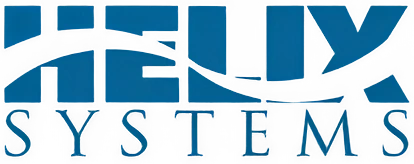Did you ever have a day where nothing got done due to troubleshooting technology?
Over the years, technology has become an integral part of running a business. Overall, businesses have benefitted greatly due to automating tasks that would require hours of manual labor. However, not understanding how to use and manage technology have cost businesses many hours of payroll.
This is why Managed Services Providers and Outsourced IT Support can benefit a business.
Having a team dedicated to providing IT support can save valuable time by helping you with your technology. Issues that your business cannot resolve can reduce productivity, frustrate your staff, and, most importantly, cost your organization time and money. A Managed Service Provider can handle both the day-to-day hurdles and the complicated projects related to the technology running your business.
What is an MSP?
Large companies have teams dedicated to just handling all the technological needs an organization requires. An MSP is a Managed Service Provider such as Helix Systems that helps give the same level of service but to small-to-medium sized businesses who may not need a full-time staff on payroll for IT.
Managed Service Providers give services to help manage computer technology. These services include daily IT support needed for administrative work, tech support, troubleshooting, and configuring computer hardware, software, telephones, networks, printers, and scanners. However, the goal of a Managed Service Provider is not to simply “put out fires” caused by technology, but to be proactive in creating an infrastructure that ensures those fires don’t happen in the first place.
Why should you work with an MSP?
While for most, partnering with an MSP can sound expensive; however, potential downtime could mean losing over thousands of dollars per hour. This possible loss in revenue alone could offset the risk and expense of hiring a dedicated IT support team to make sure that doesn’t happen.
MSPs provide peace of mind and security to your organization, but they also take businesses to the next level. By freeing up the time needed to back-up, secure, and implement new technology for the organization, companies can focus on the other tasks required to prosper.
What are other perks of working with an MSP?
- Having a helpdesk available to provide real-time remote support.
- Having a team of professionals who can answer questions and brainstorm solutions for the business
- Staying compliant with the standards and regulations that have been evolving as cybersecurity becomes a mainstream concern.
- Being able to automate even more tasks by using scripts and technology, which frees up working hours for more involved work.
- Not needing to update and maintain all of the software and hardware in your business.
What services do MSPs provide?
While each Managed Service Provider operates their business differently, several services stay consistent with each. For example, Helix Systems provides a plethora of services that you can view here at a transparent monthly rate.
What you should do during a virtual meeting:
Communicating with your team and clients is critical for businesses to thrive. This is why MSPs make sure that your phones and computers are functioning so that the business can deliver the best service. MSPs do this by routinely testing these communication channels and by keeping in communication with the most appropriate service provider.
As teleworking becomes apart of business operations, MSPs help with this too. They provide solutions for remote employees to communicate and collaborate.
Inventory Management
An MSP keeps track of the software and hardware information that they monitor. Having this list available allows businesses to make informed decisions on what technology they need to purchase. Knowing what is in their inventory prevents businesses from getting the next new product on the market when they have something similar that provides the same value within their organization.
Not only is your inventory managed, but MSPs will monitor them as well by:
- Having a dashboard that highlights relevant information
- Identifying trends and vulnerabilities within your organization
Security and Compliance
By keeping a pulse on the hardware and software within the organization, MSPs can remain proactive when reviewing the health and status of their infrastructure. They do this by performing monthly, quarterly, or yearly audits with either their internal team or alongside the leadership team within a business.
Other methods that MSPs provide an extra layer of security is by:
- Implementing best practices within an organization such as two-factor authentication and firewalls
- Organizing training sessions for the leadership team or employees within an organization so they can be better equipped to identify scams or phishing schemes.
Network and Server Management
One of the most critical services an MSP provides is making sure the organization’s networks and services are running. This service means that they monitor the hardware and software while ensuring they stay updated, protected, and under warranty. By keeping up-to-date, this ensures that there is minimal downtime, if any, within an organization.
Back-up and Disaster Recovery
When disaster strikes within an organization, having an MSP as your partner could be a lifesaver. Regardless of the reason, it’ll still impact the business, and an MSPs job is to help your business get back on its feet. They do this by proactively handling the back-ups within an organization, meaning that they copy the data periodically for when disaster strikes.
MSPs also handle disaster recovery, which means they can efficiently develop strategies to reconnect and recover from the disaster. This plan usually includes reestablishing access to IT resources, data, and applications.
MSPs can also help with storage of data within the organization by:
- Offering storage solutions that can enhance the security of your data.
- Creating infrastructure for your data.
- Routinely assessing the storage setup to ensure that it’s optimized.
MSPs with Employee On-Boarding and Off-Boarding
While most would think that employee on/off boarding is solely an HR Issue, technology plays a large part in the process. Having it all set up on the first day, MSPs can make getting the hardware and credentials needed for the employee less stressful. This results in a more productive first day and a positive start for a new hire, which increases retention (which means less turnover). The same could be said for off-boarding employees since MSPs can make the process painless and seamless by revoking user access.
About Our MSP, Helix Systems
Finding the right MSP to work alongside your business could be difficult, especially with convoluted pricing plans for outsourcing IT. This needless confusion is why Helix Systems believes in keeping things simple and transparent for our clients. We believe in making the technology in your business as invisible as possible so you can focus on your business.




